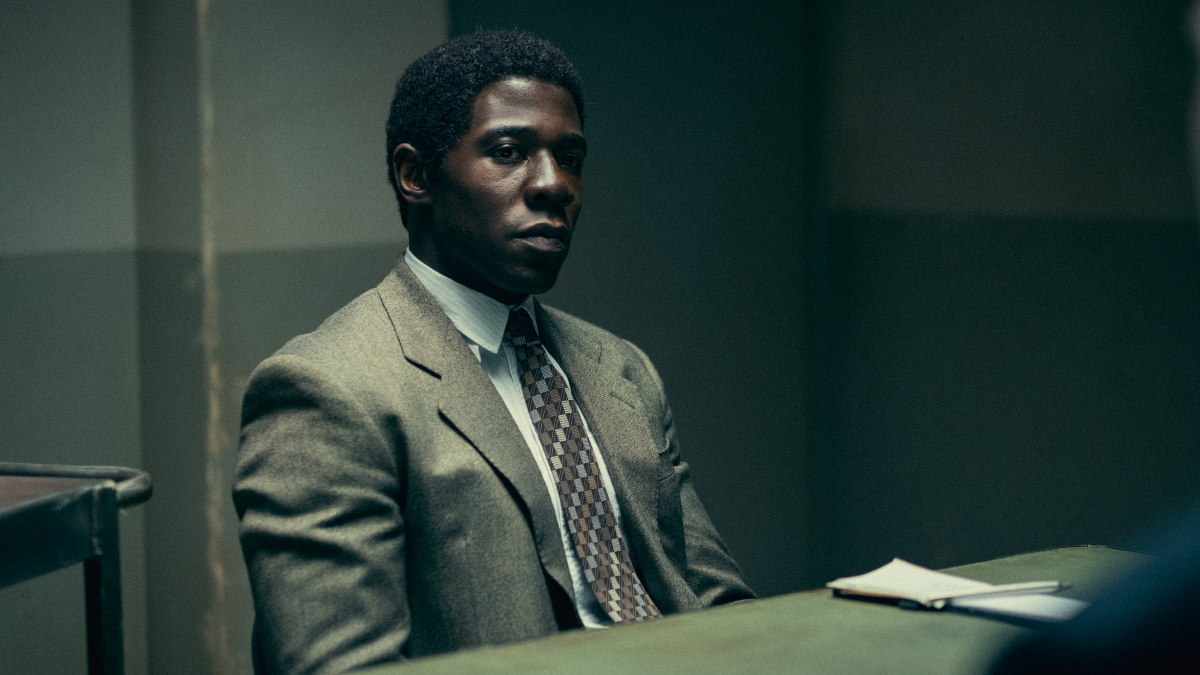Netflix’s newest drama Eric has been at the top of the streaming charts since it debuted on May 30, 2024, and it’s easy to see why the show is so popular. It’s a gritty exploration of 1980s New York City’s underbelly, a riveting family drama, and a gripping crime procedural all rolled into one perfectly balanced six-episode limited series.
This series was written by Abi Morgan (The Iron Lady) and stars Benedict Cumberbatch as Vincent, a successful puppeteer from a wealthy and powerful New York City real estate family. Vincent is a creative genius at work, where he heads up a children’s show similar to Sesame Street called Good Day Sunshine. His genius comes at a cost, however. He’s a narcissist and an angry alcoholic who alienates himself at work and at home, butts heads with the network suits, and fights constantly with his wife Cassie (Gaby Hoffmann) while belittling his sweet 9-year-old son, Edgar (Ivan Morris Howe).

Then Edgar suddenly goes missing, and a terrifying new world opens up beneath their feet. Detective Michael Ledroit (McKinley Belcher III) of the NYPD missing persons unit begins searching for the boy. Ledroit is gay and secretly caring for his partner, who is dying of AIDS, and he also checks in regularly with an old flame named Gator (Wade Allain-Marcus) who runs the Lux nightclub. A lot of bad stuff happens at the Lux, and Ledroit is convinced there’s a connection between the illicit back alley dealings and all the missing children cases crossing his desk. Another boy, 14-year-old Marlon Rochelle (Bence Orere) is also missing.
As first Edgar and then Ledroit descend into the filthy underground camps of the city’s unhoused population, the audience goes along to lend witness. The show touches on a lot of troubling issues from the 1980s, painting NYC as a sort of hellscape, which it arguably was in that era. As Morgan told Tudum, “Eric is a deep dive into the ’80s Big Apple, grappling with rising crime rates, internal corruption, endemic racism, a forgotten underclass, and the AIDS epidemic, exposing the divisions rife between parents searching for their child, a detective battling with a system that is broken, and a lost boy who may never come home—and asks where the real monsters lie.”
Vincent drinks more and more to cope with his guilt over losing his son, believing deep down that the kid fled because of Vincent’s own irrational anger and substance abuse. He decides to make a new monster for Good Day Sunshine based on Edgar’s drawings of Eric, a big furry monster (who owes a huge hat tip to Sully from Monsters, Inc., if you ask me), convincing himself that if Edgar sees Eric on TV, he’ll come home. Thus begins his downward spiral, and he won’t stop until he reaches rock bottom.
The show spans a gambit of social issues while keeping the focus firmly on Vincent as he wanders the city, talking to a giant monster who isn’t really there. Ledroit deftly unpacks the mystery around the Lux, but ultimately it takes a sort of (rather too simple) deux ex machina moment in the finale to fully divulge the details of what happened to Marlon. Still, it’s fun to watch him take control of his power (thanks to Gator) and bring some of the NYPD and city government’s most prominent men to justice.

Spoilers ahead through the final episode of Eric
The final episode is when everything gets resolved, perhaps a bit too tidily for some. Vincent finally gets Eric on television, and there’s a happy-ish reunion for the family. Ledroit catches his culprits, and the city is just a little bit safer. Most importantly, Vincent slays his monster, literally punches him out, and regains a modicum of control over himself. He finally takes ownership for his actions and asks for forgiveness, admits he has a problem, and begins to take steps to get better. It’s a powerful message about what’s really scary in life—it’s not the monsters under the bed, it’s the monsters that live inside our own heads.
Eric also reminds us that there are many different kinds of monsters. There are the demons that grip us with addiction and fear, and the real-life monsters who would sell a child to pay off their debt to a drug dealer. The kind of monsters who pick up more than garbage to throw on the trash barge bound for New Jersey. The kind who hide in plain sight next to us at work. They’re all around us, all the time, whether we know it or not.
It’s rare to find six hours of programming that is this spellbinding. Eric is sometimes difficult to watch, but always interesting, and it’s enhanced by incredible performances from everyone in the cast. We’ll never look at Cumberbatch the same after seeing him take a character down to the studs and then rebuild him, right before our very eyes.
Eric is now streaming on Netflix.








